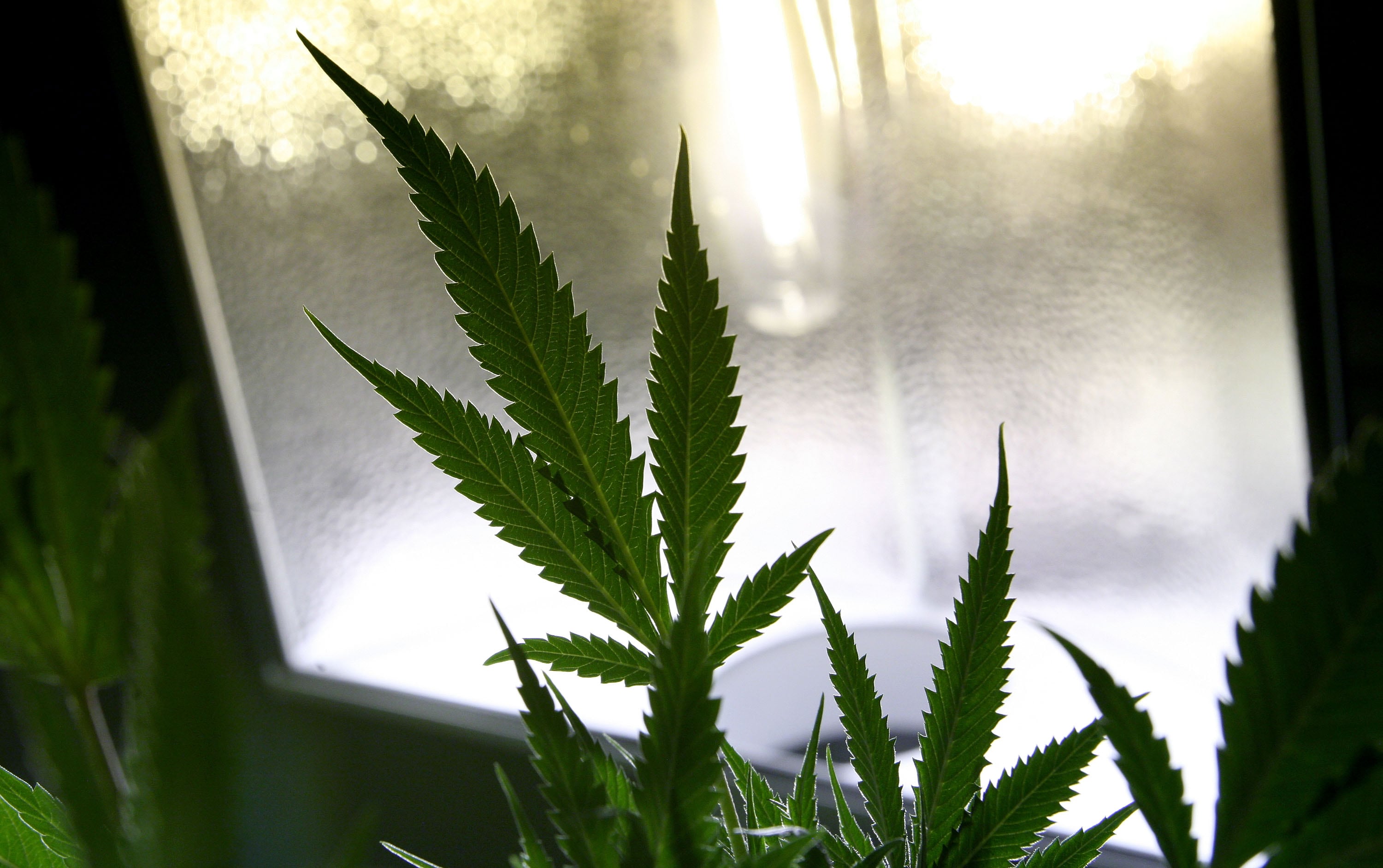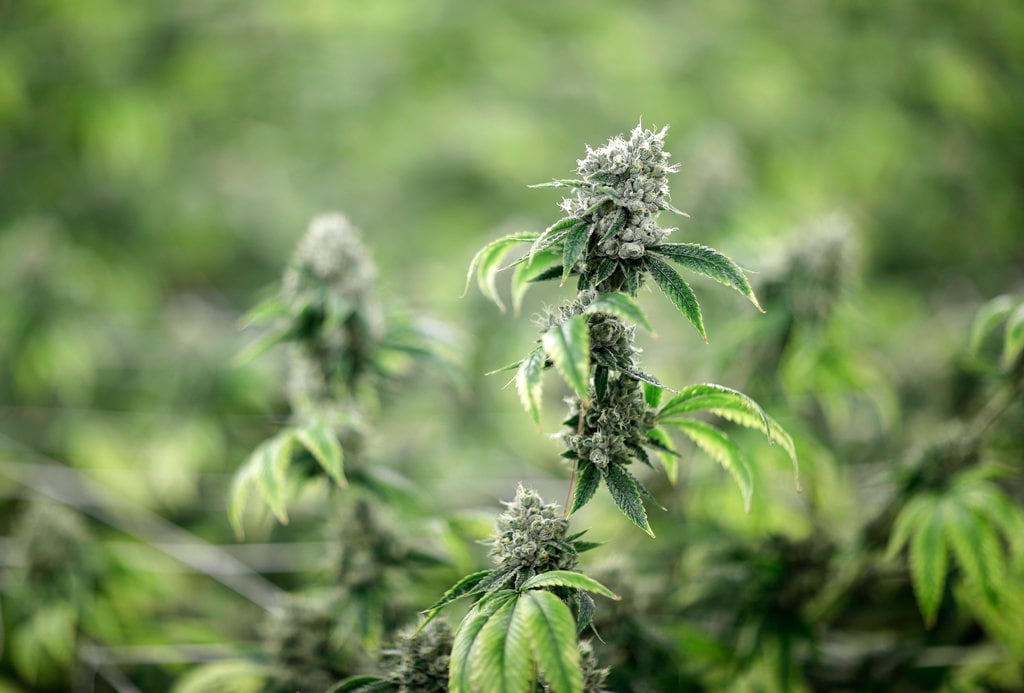NEW YORK — Army veteran Jose Belen says the horrors of the Iraq War left him with post-traumatic stress disorder, and the drug that helped him cope best with the symptoms was one his Veterans Affairs doctors could not legally prescribe: marijuana.
“Once I did use cannabis, immediately I felt the relief,” said Belen, who is now working with other medical marijuana users to mount a long-shot court challenge to federal laws criminalizing the drug.
The 35-year-old, married father of two is one of five plaintiffs in a lawsuit claiming that the government’s decision to classify marijuana as dangerous is irrational, unconstitutional and motivated by politics, not hard science.
RELATED

Government lawyers will argue Wednesday before U.S. District Judge Alvin Hellerstein in New York that the law is well-grounded and the case should be dismissed.
The suit originally was filed in July as a growing number of states have broken with the federal government and declared marijuana to be legal. Thirty have now legalized it in some fashion, including six for recreational use.
The lawsuit challenges the listing of marijuana as a Schedule I drug, a category that includes heroin and LSD. The federal government says drugs under the classification have no accepted medical use and cannot legally be prescribed.
RELATED

The lawsuit names the Department of Justice, Attorney General Jeff Sessions and the Drug Enforcement Administration as defendants.
The other plaintiffs include:
— Former NFL player Marvin Washington, the co-founder of a company that sells hemp-based sports performance products;
— A nonprofit organization called the Cannabis Cultural Association that helps minorities benefit from the marijuana industry in states where it is legal;
— Twelve-year-old Alexis Bortell, who takes marijuana to control epilepsy, and 7-year-old Jagger Cotte, who uses marijuana to treat a severe neurological disorder called Leigh’s syndrome.
Poised and outwardly calm, Belen, who lives in Orlando, Florida, said he left a post-military career in insurance to found an organization called Mission Zero that works to end suicide among veterans.

Medical research on marijuana has been sharply constrained by federal law, but Belen said he found it effective for taming PTSD symptoms while other medications pushed him closer to depression and possibly suicide.
He said it is unfair that federal law prohibits him from crossing state lines with the drug, even when traveling to states where it is legal.
“I went to Iraq to free the oppressed and I view this no different,” Belen said. “The oppression is only being done by our own government.”
The plaintiffs have asked the court for the broadest of remedies: a permanent injunction preventing the government from enforcing the Controlled Substances Act as it pertains to cannabis. It isn’t clear what the practical effect of such a ruling would be.
The government argued in its motion to dismiss the lawsuit that if the plaintiffs want the drug reclassified, there are other options, including an administrative petition to have marijuana rescheduled or asking Congress to change the law.
In a court filing, government attorneys said the administration “uniformly rejects the notion that there is a fundamental right to use marijuana, including for medical purposes.”
Marijuana got its Schedule I designation as part of the ranking or “scheduling” of drugs under the 1970 Controlled Substances Act.
According to the lawsuit, Republican President Richard Nixon ignored an expert panel’s recommendation that possession of cannabis for personal use be decriminalized because he wanted to use drug policy to target anti-war protesters and black people.
The lawsuit quotes Nixon domestic policy chief John Ehrlichman, who was quoted in a 2016 Harper’s Magazine story as having said: “We knew we couldn’t make it illegal to be either against the war or black, but by getting the public to associate the hippies with marijuana and blacks with heroin and then criminalizing both heavily, we could disrupt those communities.”
The plaintiffs say marijuana doesn’t meet the Schedule 1 requirements of having a high potential for abuse, no medical use in treatment and no possibility for safe testing.
The lawsuit notes that in 2014 the Justice Department and the Treasury Department’s Financial Crimes Enforcement Network issued guidance for how banks could provide services to marijuana businesses that were legal under state laws.
“On the one hand the federal government wants to put people in jail, while at the same time the federal government currently has a policy to encourage banks to go into business with cannabis companies,” lead attorney Michael Hiller said. “They’re attempting to reserve the right to prosecute people for engaging in the very conduct that the federal government has encouraged.”
Or, used to encourage. Sessions, an opponent of legal marijuana, last month reversed an Obama administration policy of backing off of strict enforcement of federal law in states that have voted to legalize the drug.
Encouraging federal prosecutors to hit hard, he said that Congress had decided that “marijuana is a dangerous drug and that marijuana activity is a serious crime.”
